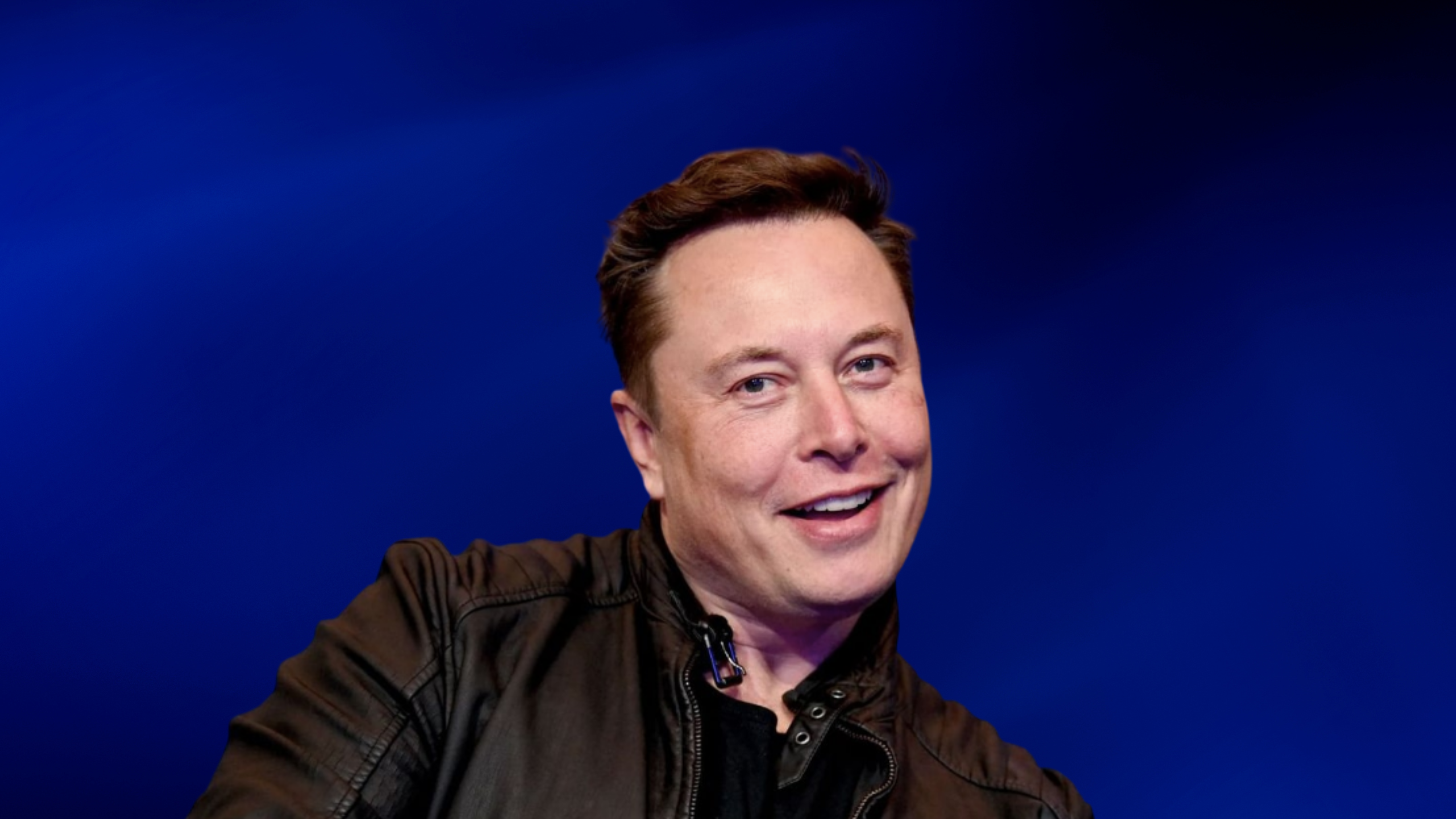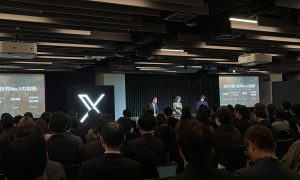The mainstream media’s trashing of Elon Musk is not journalism at all. In fact, I think it’s highly disturbing that news websites are so obsessed with Elon Musk. They’ve gone from using his name to make money off of clicks to making up stuff about him or twisting his words for clicks.
Remember that Wall Street Journal article from this weekend? The one that accused Elon Musk of having an affair with Sergey Brin’s wife and claimed that Elon and Sergey were no longer friends. This is one example.
The WSJ’s decision to stand by its already refuted article shows that journalistic ethics have been sold for clicks. It’s a sad day for journalism.
Moreover, I talked to Sergey yesterday and he says neither he nor anyone he knows has talked to WSJ
— Elon Musk (@elonmusk) July 27, 2022
Not only did Elon Musk publicly deny the story, but so did Nichole Shanahan’s lawyer. In a statement to The Daily Mail, the attorney said that not only was the WSJ’s report false, but it was also defamatory.
“Make no mistake, any suggestion that Nicole had an affair with Elon Musk is not only an outright lie but also defamatory.”
Additionally, Elon Musk shared a photo of himself and the Google co-founder with the New York Post and said, that he’d spoken with both parties who were adamant that they were not the source behind the WSJ’s claims.
Why is the mainstream media’s trashing of Elon Musk intensifying?
Why does the mainstream media hate Elon Musk so much? This is a question I asked on Twitter. It was rhetorical because many in the Tesla community, including myself, suspect a few reasons.
Tesla’s refusal to buy advertising, Elon’s continuous standing up for himself against trolls, and of course, the clicks.
One thing I’ve noticed is that this hatred of Elon is intensifying. And the WSJ’s refusal to retract its allegations reflects its dismissal of journalistic ethics. According to a spokesperson from the outlet, “We are confident in our sourcing, and we stand by our reporting.”
That WSJ article doesn’t line up with the SPJ Code of Ethics.
The Society of Professional Journalists has its own Code of Ethics and in my opinion, that hit piece on Elon Musk definitely does not line up with that code.
These sources were not identified clearly and yet the WSJ is banking its reputation on these sources despite not even interviewing any of the parties involved. Another note from the SPJ Code of Ethics is to consider the motives of the sources before promising anonymity.
In fact, journalists should reserve anonymity for sources who may face danger, retribution, or other harm. And they need to have information that can’t be obtained elsewhere.
If the story were true, where’s the evidence?
If the story of Elon Musk kneeling in front of Sergey Brin at a party were true, why are there no videos or photos? Surely it would be easy to pull out your phone, snap a pic and post it to Twitter. Everyone wants photos of Elon Musk.
If we can see Elon vacationing with his friends in Greece, then surely the WSJ would want to see evidence of Elon doing what they said he did. How come we don’t have any evidence?
Ethics traded for the trashing of Elon Musk
The SPJ Code of Ethics also says that journalists should balance the public’s need for information against potential harm or discomfort. “Pursuit of the news is not a license for arrogance or undue intrusiveness.”
The code also calls for journalists to show compassion for those who may be affected by the news coverage. Where is the compassion for Elon Musk, Sergey Brin, and Nichole Shanahan?
You can access the full code of ethics here.
If you have a tip, feel free to send them to johnna@teslarati.com
News
Tesla cleared in Canada EV rebate investigation
Tesla has been cleared in an investigation into the company’s staggering number of EV rebate claims in Canada in January.

Canadian officials have cleared Tesla following an investigation into a large number of claims submitted to the country’s electric vehicle (EV) rebates earlier this year.
Transport Canada has ruled that there was no evidence of fraud after Tesla submitted 8,653 EV rebate claims for the country’s Incentives for Zero-Emission Vehicles (iZEV) program, as detailed in a report on Friday from The Globe and Mail. Despite the huge number of claims, Canadian authorities have found that the figure represented vehicles that had been delivered prior to the submission deadline for the program.
According to Transport Minister Chrystia Freeland, the claims “were determined to legitimately represent cars sold before January 12,” which was the final day for OEMs to submit these claims before the government suspended the program.
Upon initial reporting of the Tesla claims submitted in January, it was estimated that they were valued at around $43 million. In March, Freeland and Transport Canada opened the investigation into Tesla, noting that they would be freezing the rebate payments until the claims were found to be valid.
READ MORE ON ELECTRIC VEHICLES: EVs getting cleaner more quickly than expected in Europe: study
Huw Williams, Canadian Automobile Dealers Association Public Affairs Director, accepted the results of the investigation, while also questioning how Tesla knew to submit the claims that weekend, just before the program ran out.
“I think there’s a larger question as to how Tesla knew to run those through on that weekend,” Williams said. “It doesn’t appear to me that we have an investigation into any communication between Transport Canada and Tesla, between officials who may have shared information inappropriately.”
Tesla sales have been down in Canada for the first half of this year, amidst turmoil between the country and the Trump administration’s tariffs. Although Elon Musk has since stepped back from his role with the administration, a number of companies and officials in Canada were calling for a boycott of Tesla’s vehicles earlier this year, due in part to his association with Trump.
News
Tesla Semis to get 18 new Megachargers at this PepsiCo plant
PepsiCo is set to add more Tesla Semi Megachargers, this time at a facility in North Carolina.

Tesla partner PepsiCo is set to build new Semi charging stations at one of its manufacturing sites, as revealed in new permitting plans shared this week.
On Friday, Tesla charging station scout MarcoRP shared plans on X for 18 Semi Megacharging stalls at PepsiCo’s facility in Charlotte, North Carolina, coming as the latest update plans for the company’s increasingly electrified fleet. The stalls are set to be built side by side, along with three Tesla Megapack grid-scale battery systems.
The plans also note the faster charging speeds for the chargers, which can charge the Class 8 Semi at speeds of up to 1MW. Tesla says that the speed can charge the Semi back to roughly 70 percent in around 30 minutes.
You can see the site plans for the PepsiCo North Carolina Megacharger below.

Credit: PepsiCo (via MarcoRPi1 on X)

Credit: PepsiCo (via MarcoRPi1 on X)
READ MORE ON THE TESLA SEMI: Tesla to build Semi Megacharger station in Southern California
PepsiCo’s Tesla Semi fleet, other Megachargers, and initial tests and deliveries
PepsiCo was the first external customer to take delivery of Tesla’s Semis back in 2023, starting with just an initial order of 15. Since then, the company has continued to expand the fleet, recently taking delivery of an additional 50 units in California. The PepsiCo fleet was up to around 86 units as of last year, according to statements from Semi Senior Manager Dan Priestley.
Additionally, the company has similar Megachargers at its facilities in Modesto, Sacramento, and Fresno, California, and Tesla also submitted plans for approval to build 12 new Megacharging stalls in Los Angeles County.
Over the past couple of years, Tesla has also been delivering the electric Class 8 units to a number of other companies for pilot programs, and Priestley shared some results from PepsiCo’s initial Semi tests last year. Notably, the executive spoke with a handful of PepsiCo workers who said they really liked the Semi and wouldn’t plan on going back to diesel trucks.
The company is also nearing completion of a higher-volume Semi plant at its Gigafactory in Nevada, which is expected to eventually have an annual production capacity of 50,000 Semi units.
Tesla executive teases plan to further electrify supply chain
News
Tesla sales soar in Norway with new Model Y leading the charge
Tesla recorded a 54% year-over-year jump in new vehicle registrations in June.

Tesla is seeing strong momentum in Norway, with sales of the new Model Y helping the company maintain dominance in one of the world’s most electric vehicle-friendly markets.
Model Y upgrades and consumer preferences
According to the Norwegian Road Federation (OFV), Tesla recorded a 54% year-over-year jump in new vehicle registrations in June. The Model Y led the charge, posting a 115% increase compared to the same period last year. Tesla Norway’s growth was even more notable in May, with sales surging a whopping 213%, as noted in a CNBC report.
Christina Bu, secretary general of the Norwegian EV Association (NEVA), stated that Tesla’s strong market performance was partly due to the updated Model Y, which is really just a good car, period.
“I think it just has to do with the fact that they deliver a car which has quite a lot of value for money and is what Norwegians need. What Norwegians need, a large luggage space, all wheel drive, and a tow hitch, high ground clearance as well. In addition, quite good digital solutions which people have gotten used to, and also a charging network,” she said.
Tesla in Europe
Tesla’s success in Norway is supported by long-standing government incentives for EV adoption, including exemptions from VAT, road toll discounts, and access to bus lanes. Public and home charging infrastructure is also widely available, making the EV ownership experience in the country very convenient.
Tesla’s performance in Europe is still a mixed bag, with markets like Germany and France still seeing declines in recent months. In areas such as Norway, Spain, and Portugal, however, Tesla’s new car registrations are rising. Spain’s sales rose 61% and Portugal’s sales rose 7% last month. This suggests that regional demand may be stabilizing or rebounding in pockets of Europe.
-

 Elon Musk2 weeks ago
Elon Musk2 weeks agoTesla investors will be shocked by Jim Cramer’s latest assessment
-

 Elon Musk2 days ago
Elon Musk2 days agoxAI launches Grok 4 with new $300/month SuperGrok Heavy subscription
-

 Elon Musk4 days ago
Elon Musk4 days agoElon Musk confirms Grok 4 launch on July 9 with livestream event
-

 News1 week ago
News1 week agoTesla Model 3 ranks as the safest new car in Europe for 2025, per Euro NCAP tests
-

 Elon Musk2 weeks ago
Elon Musk2 weeks agoA Tesla just delivered itself to a customer autonomously, Elon Musk confirms
-

 Elon Musk1 week ago
Elon Musk1 week agoxAI’s Memphis data center receives air permit despite community criticism
-

 News2 weeks ago
News2 weeks agoXiaomi CEO congratulates Tesla on first FSD delivery: “We have to continue learning!”
-

 Elon Musk1 week ago
Elon Musk1 week agoTesla scrambles after Musk sidekick exit, CEO takes over sales














